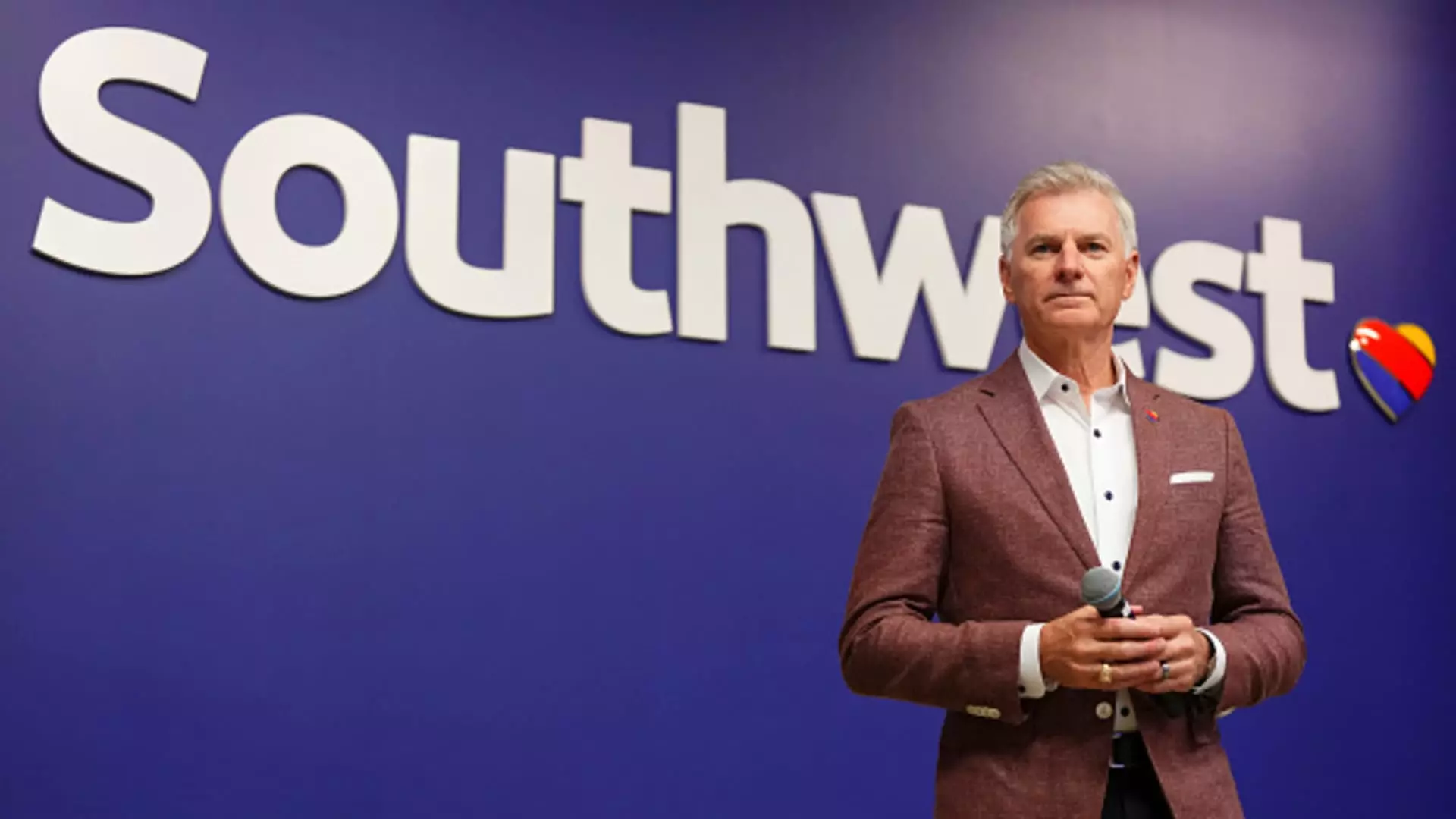In a significant shift within the corporate governance of Southwest Airlines, the company has entered into a pivotal agreement with activist hedge fund Elliott Investment Management. This deal, structured to prevent a contentious proxy battle, will result in the appointment of six new directors to the airline’s board. While this move falls short of granting Elliott full board control, it represents a meaningful transformation in the airline’s top leadership. The prominent leadership roles of both Executive Chairman Gary Kelly and CEO Bob Jordan have come under scrutiny, yet Jordan will retain his position, at least for the immediate future.
Implications of Board Changes
The addition of six directors, notably including five nominated by Elliott and former Chevron CFO Pierre Breber, underscores a strategic shift in board composition aimed at revitalizing the airline’s operations and decision-making processes. This change is crucial as Southwest seeks to navigate its long-term challenges, including adapting its business model, which has remained largely unchanged for half a century. The need for fresh perspectives and strategic thinking appears more critical than ever, especially amid stagnant stock performance — Southwest’s shares have merely increased by less than 1% in the current year, starkly contrasting with a 21% rise in the S&P 500.
Leadership Transition and Strategic Shifts
The agreement fast-tracks Kelly’s retirement, allowing him to step down next month rather than the previously scheduled timeline of next year. His longstanding leadership, spanning over three decades at Southwest, could mean a substantial shift in corporate culture and strategic focus as the incoming directors aim to challenge existing paradigms. Elliott Investment Management had positioned itself as a change agent, seeking to replace the perceived inertia at Southwest regarding sales and profit optimization. Critics have long asserted that the airline’s traditional policies, such as open seating and single-class cabins, have limited its competitiveness against more agile rivals like Delta Air Lines.
Despite some encouraging financial results, such as a third-quarter profit that exceeded analyst expectations, the airline’s road ahead is fraught with challenges. Consequently, Southwest has resorted to cutting back on unprofitable routes in an attempt to reduce costs. In a recent statement during Investor Day, the airline indicated that new revenue initiatives could potentially yield an additional $4 billion in earnings before interest and taxes by 2027. Coupled with a $2.5 billion stock buyback program initiated, this indicates a commitment to enhancing shareholder value, demonstrating a shift in focus toward sustainable operational health and shareholder appreciation.
As the airline embarks on this transformative journey, Southwest faces skepticism in the market. Despite some positive projections and recent financial commitments, shares were down roughly 6% in midday trading soon after the announcement. This market reaction serves as an indicator of investor wariness regarding the efficacy of these changes and their long-term impact. The dynamics between existing leadership and new board appointments will be closely monitored as stakeholders seek reassurance about the airline’s capacity for innovation and adaptation.
The alliance between Southwest Airlines and Elliott Investment Management marks a defining moment in the airline’s history. With a revised board structure that intends to stimulate strategic evolution, the implication of deeper operational changes will be significant. As the airline prepares to embrace a redefined future, all eyes will be on whether these board changes can indeed catalyze the necessary shifts for improving profitability and competitiveness in a rapidly evolving industry. The challenge of balancing the legacy of Southwest’s traditional values with the demands of modern air travel remains a complex yet critical endeavor that will dictate its trajectory in the years to come.

